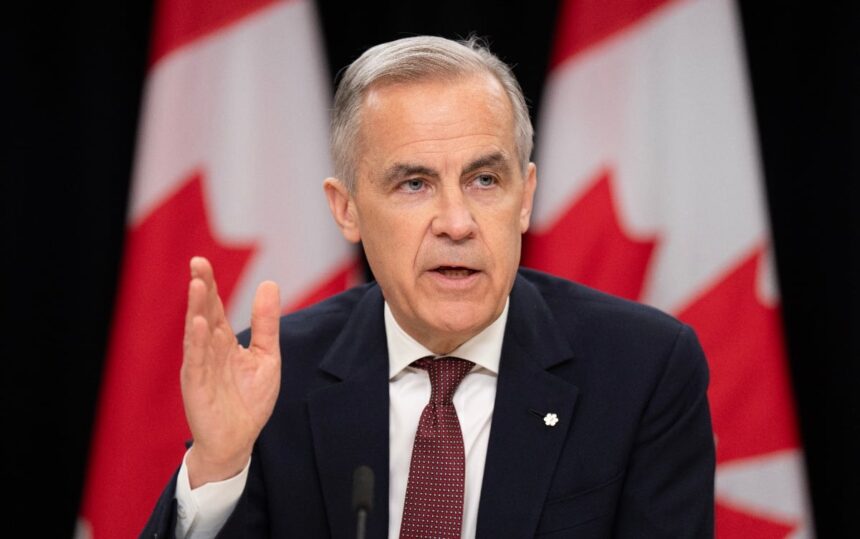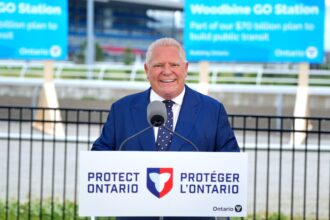The battle lines over Canada’s energy future have deepened as petroleum industry executives mount an aggressive campaign against the federal emissions cap, creating the first major policy challenge for Finance Minister Mark Carney since his appointment earlier this year.
In a closed-door meeting last week in Calgary, executives from Canada’s largest energy companies delivered a unified message to Carney: the emissions cap threatens billions in investment and thousands of jobs across Western Canada. The industry’s pushback comes as the Liberal government attempts to balance climate commitments with economic priorities in a politically charged environment.
“What we’re seeing is an unprecedented level of coordination from industry leaders who believe these regulations will fundamentally restructure Canada’s energy economy without achieving the intended environmental benefits,” said Melissa Crawford, energy policy analyst at the Canadian Energy Institute. “They’re particularly concerned about the competitive disadvantage relative to American producers who face no similar restrictions.”
The emissions cap, scheduled to take effect in January 2026, would require the oil and gas sector to reduce emissions by 35% below 2005 levels by 2030. According to government projections available on CO24 Business, this would necessitate cutting approximately 97 megatonnes of greenhouse gas emissions from current operations.
Insiders familiar with the Calgary meeting revealed that executives presented Carney with economic modeling suggesting the regulations could trigger capital flight of up to $45 billion over five years as companies redirect investments to jurisdictions with less stringent environmental regulations.
“The timing couldn’t be worse,” said James Harrington, CEO of Northern Resources Ltd. “With global energy markets still volatile and Alberta’s economy only recently stabilizing, these regulations risk undermining Canada’s energy security and economic recovery.”
Environmental advocates, however, remain steadfast in their support for the emissions cap. The Climate Action Network, in a statement obtained by CO24 Politics, called the industry’s resistance “predictable obstruction tactics” and urged the government to stand firm on its climate commitments.
“The petroleum sector has had years to prepare for these regulations,” said Dr. Elena Mikhailov, climate scientist at the University of Toronto. “The technology exists to significantly reduce emissions while maintaining production levels. What’s lacking is not capability but willingness to invest in cleaner operations.”
Carney, leveraging his background as former Bank of Canada governor and UN Special Envoy on Climate Action and Finance, has positioned himself as a mediator between economic and environmental concerns. Sources close to the finance minister indicate he is considering modifications to the implementation timeline rather than outright repeal.
“Minister Carney understands both the financial realities of energy markets and the existential threat of climate change,” a senior finance department official told CO24 News on condition of anonymity. “He’s looking for a balanced approach that maintains Canada’s competitiveness while honoring our international climate commitments.”
The emissions cap debate comes as Canada News reports show the country struggling to meet its Paris Agreement targets. Despite accounting for approximately 27% of Canada’s total emissions, the oil and gas sector has seen emissions rise by 21% since 2005, offsetting reductions achieved in other sectors.
Internationally, Canada’s approach is being closely watched. According to World News reports, the European Union is considering carbon border adjustment mechanisms that would penalize imports from countries with insufficient climate policies, potentially affecting Canadian exports if emissions reductions fall short.
As the negotiations continue, both sides appear entrenched. Industry leaders have scheduled meetings with provincial premiers and opposition MPs, while environmental groups plan demonstrations in major Canadian cities next month.
The fundamental question remains: can Canada balance its role as a major energy producer with its climate ambitions, or will one priority ultimately be sacrificed for the other?























